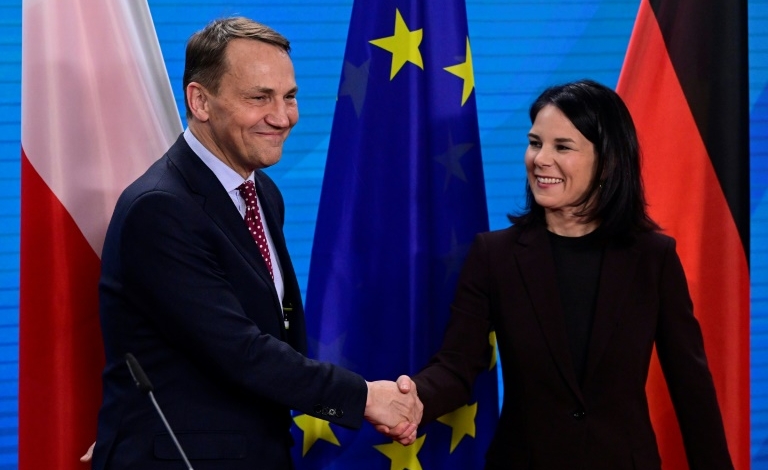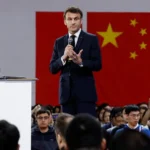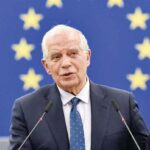The new head of French diplomacy Stéphane Séjourné invited his German counterparts Annalena Baerbock and Polish counterpart Radoslaw Sikorski to a meeting in “Weimar” format at the Château de La Celle-Saint-Cloud, in the Paris suburbs, a historic site and property of the Ministry of Affairs foreign countries which once welcomed Queen Elizabeth II and “First Lady” Jacqueline Kennedy.
On Monday, France, Germany and Poland will unveil new cooperation against foreign disinformation operations, particularly coming from Russia, Mr. Séjourné announced this weekend.
In addition, the ministers will jointly report new information attacks launched by Moscow against the three countries.
“Our three countries have been victims of the same destabilization strategy. On Monday, we will make announcements on new cooperation against disinformation and Russian information attacks,” declared Stéphane Séjourné in an interview with the French regional daily Ouest-France, published SATURDAY.
So far, the attacks have been launched via troll factories and fake news sites.
“We will transparently reveal to public opinion the instruments of this disinformation. We will reveal the attacks that are being committed. And with proof,” he assured, also noting “concordant elements which indicate that there are dormant operations. Tools that can be activated at any time, particularly during an election” in the three countries.
According to the minister, these attacks aim to divide public opinion instead of dividing the leaders of the European Union who intend to continue their support for Ukraine at war against Russia.
The very day he took office, Stéphane Séjourné hammered it home: “helping Ukraine means guaranteeing the victory of democracy.” It was kyiv that the minister chose for his first official trip before going to Berlin and Warsaw.
- Considerable weight –
When he arrived at the Quai d’Orsay, just a month ago, Stéphane Séjourné also made it clear that he would give priority to Europe and that he would relaunch the “Weimar” triangle, cooperation between France, Germany and Poland put on hold in recent years.
The moment is propitious, with Poland being led, since its electoral victory in October, by a pro-European coalition led by the former head of the European Council Donald Tusk, note the French and German sides.
Paris, Berlin and Warsaw believe that enhanced cooperation within the framework of the Weimar triangle is a means of consolidating Europe’s position on the international scene and responding more effectively to common challenges. Because between them, their weight is considerable both geographically – since they represent Western Europe, Central Europe and Eastern Europe – and demographically with some 200 million inhabitants, almost half of the EU population.
Their weight is also military (more than a quarter of military spending) and political with broad representation.
On Monday, there will also be talk of the Middle East and the war in Gaza, another major subject of concern which for a time seemed to eclipse the war in Ukraine.
Stéphane Séjourné, who was very recently in the region, will discuss with his counterparts the fight against terrorism, the release of hostages including three French people still held in the Gaza Strip, sanctions against the Palestinian Islamist movement Hamas and against violent Israeli settlers in the West Bank, the humanitarian ceasefire or even possible initiatives to avoid regional escalation.
This article is originally published on clicanoo.re








